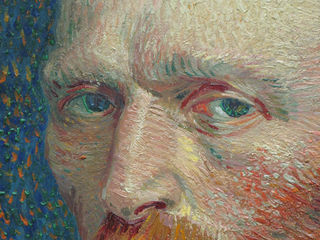Genetics
Are Creativity and Madness Written Together in Your Genes?
Study shows same genes underlying creativity and psychosis
Posted May 4, 2016

From van Gogh to Robin Williams to Charlie Chaplin to Lord Byron and more, our intuition pairs creativity with madness. Science agrees. Studies show that people with a touch of schizophrenia are more likely to be creative and vice versa. We've even known that an area of the brain overactive in people with schizophrenia is also active during creative tasks.Now a study in Nature Neuroscience gives us a reason why: creativity and madness may share the same genetic underpinnings.
From the time your parents' chromosomes combine to create your genome, there is a thumb on the scale of your fate. Your genes don't completely predetermine your IQ or risk for things like cancer, diabetes, heart disease and Alzheimer's, but they act like a force of gravity, making it easier for you to sink into certain states than others. The same is true of schizophrenia and bipolar disorder -- there are genes, and more specifically genetic variants, that help to determine your risk. For example, people with an abnormality in the dopamine receptor D2 gene (DRD2) are unusually likely to be diagnosed with schizophrenia. A 2014 study found 108 of these genes that were associated with schizophrenia to varying degrees. Using these genes, scientists have developed what is called a "polygenic risk score" for schizophrenia -- meaning that if you sequenced a person's genome and then fed it into this very specialized magic 8 ball, it could read these 108 genes to determine if that person has an increased risk of schizophrenia. Scientists have done the same with bipolar disorder.
This isn't to say that these genes are responsible for creating schizophrenia or bipolar disorder. It may be that these conditions happen to amplify or adjust or rearrange these genes, or it may be that changes in these genes are the happenstance byproducts of other changes that actually matter. But somewhere in this genetic soup are very likely hiding the culprits that create what past generations of philosophers and scientists would call "madness".
Here's the question: are people with higher polygenic risk scores for schizophrenia and bipolar disorder also more likely to be creative?
Unfortunately, it would take knowing the genomes and creativity scores of many thousands of people to prove a pattern of sharing. Think about it: every person who was creative without elevated mental health risk profiles and every person with an elevated mental health risk profile who wasn't creative would count against the possibility of a connection. And so you can't solve this question with 10 people or 100 people or even 1,000 people. Luckily the researchers had 82,696 people.
See, the national healthcare system of Iceland holds the genetic information and health histories of the majority of its population. Many outlets have reported that this initiative makes Iceland the world's leading genetic laboratory. In this giant database, we have people with certain genes and certain conditions, and most importantly we have enough of both to ask the question which genes go with which conditions?
Again, in this case, the genes were these polygenic risk scores for schizophrenia and bipolar disorder and the "condition" was creativity. They had the genes, but how the heck could they test creativity in a sample of more than 82,000? You certainly couldn't distribute a questionnaire. Instead, they mined the registries of national artistic societies that included actors, dancers, musicians, visual artists and writers.
Sure enough, people with high polygenic risk scores were over-represented in these societies: people at risk for mental illness were also "at risk" of being creative. This may seem like the same kind of correlative study showing links between creativity and mental illness that have been done in the past...but it goes one very important step further. What this shows, in the words of the researchers, is that "creativity and psychosis share genetic roots."
It wasn't even that creativity and psychosis tend to run in the same families (and people in the these families happen to share genetics). No matter how related or unrelated people in this sample were to each other, genetic risk for psychosis also predicted creativity. Again, you can't say for certain that these genetic profiles cause psychosis and creativity. These polygenic risk scores may only be associated with both of these things. But the researchers write that, "the main finding presented here is that creativity, conferred, at least in part, by common genetic variants, comes with an increased risk of psychiatric disorders conferred by the same genetic variants."


